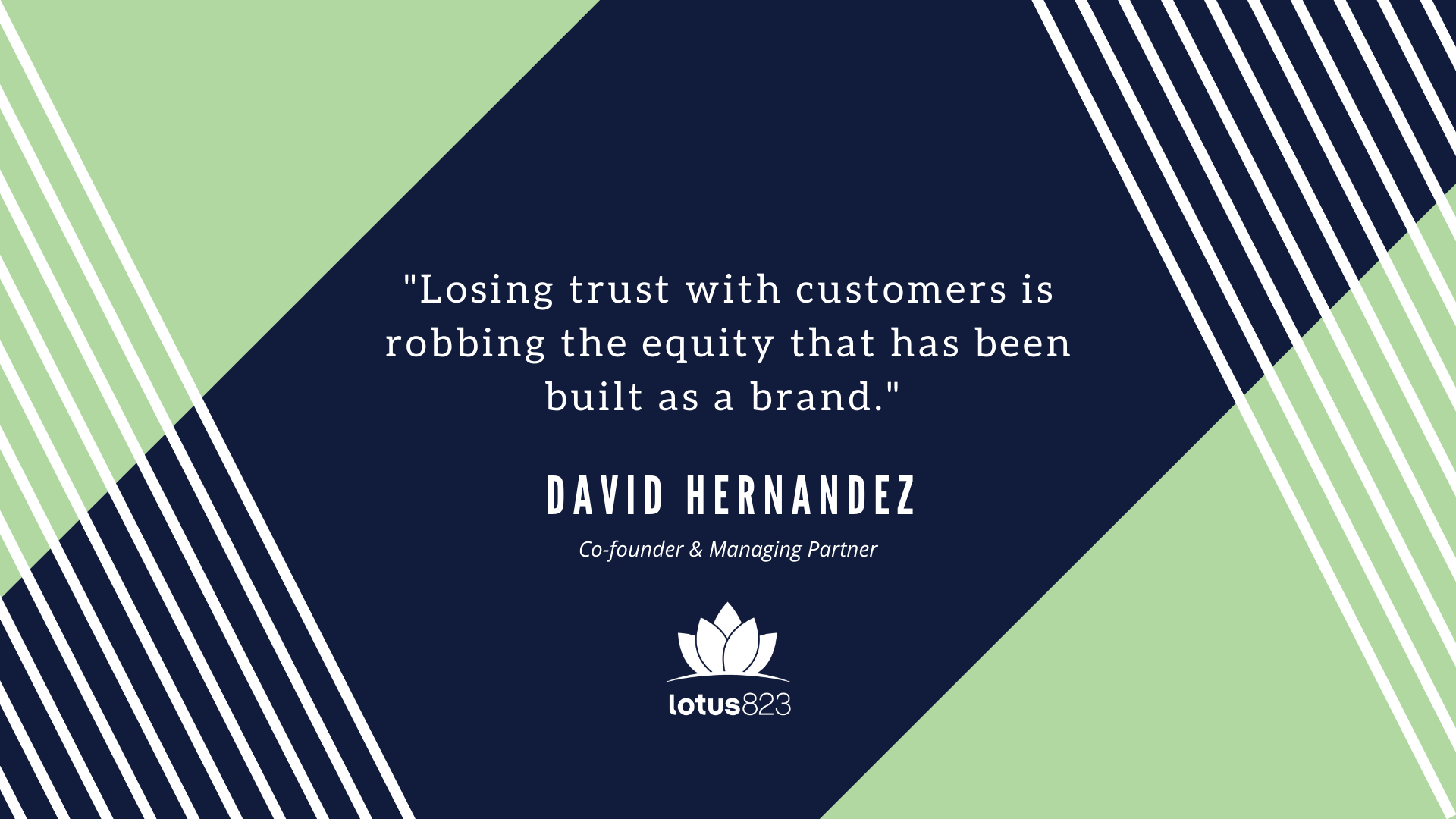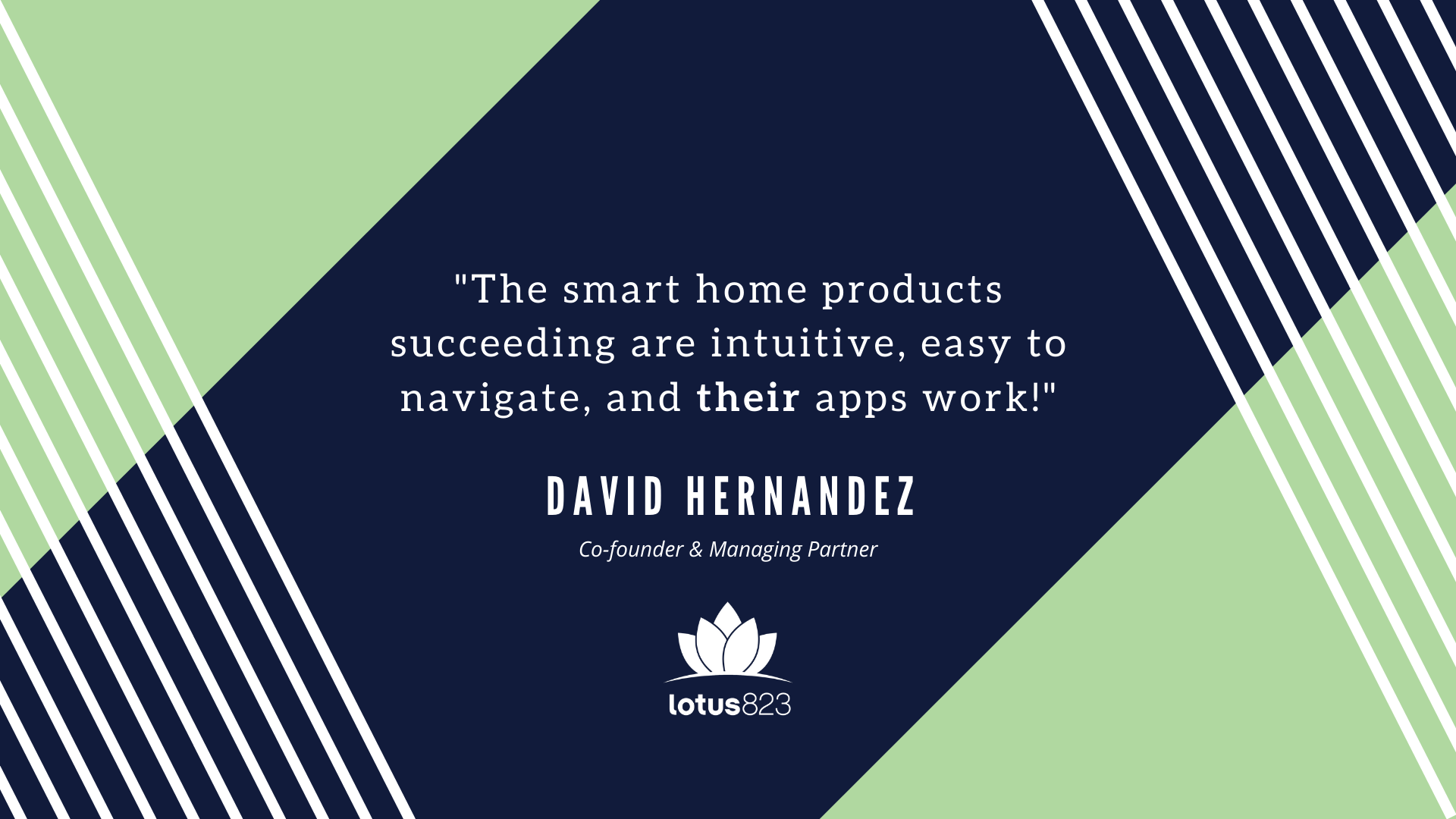As an agency that has worked in the Smart Home space for many years, helping home and tech brands break into the field and grow their audiences, we have the expertise and deep understanding of what generates success. David Hernandez, lotus823’s Co-Founder and Managing Partner, recently shared his insight on this evolving market. Read on to hear some of his key takeaways!

Navigating Growth in the Smart Home Industry: Breaking Down the Barriers and Best Business Practices
By David Hernandez
Roadmap for Success
First and foremost, starting with a brand strategy that addresses the critical issues that impact housewares brands today is crucial. This encompasses every aspect from trusted partners, covering privacy and security issues, having the right retail distribution model, and an intelligent marketing strategy that works in conjunction with the retail model.
Privacy Protection

It’s no secret that security has become a major topic of conversation across every category of tech. As brands seek out third-party and cloud-based solutions for elements of their services tying back to their products, it is important to find trusted partners. Brands should make their selection after thoroughly researching who the service provider is, where they’re located, and how secure their systems are. One slip up could cost the brand equity that has been built.
With any smart product, there’s data monitored and stored somewhere. Brands need to ensure their security systems are the best. Consumers are becoming more aware of privacy issues, which is creating a necessity for brands to get in front of that.
Determining Retail Distribution
The distribution model for each brand varies, because it is no longer just looking at online and brick and mortar retailers. From our experience with dozens of brands facing this decision, it’s a challenge to come up with an intelligent retail distribution strategy. Determining what resources are available, depends on the terms of what the brand can manage.
We recommend having at least some percentage of eCommerce due to the information it provides on customers. Through eCommerce, brands are able to build a database to communicate directly with customers and are also given the ability to learn what to do in the future. Working solely with retailers can be a black hole – there is no way to communicate with customers, because it’s not really your customer.
Forming an Intelligent Marketing Strategy

The marketing strategy ties into the retail distribution model and the brand’s data. Having a cross-platform strategy is a must-have; one that lets you become visible to customers and future customers across all channels. Having a visible online digital footprint and website is an asset. This offers engagement and communication that can then flow on all other platforms too. Creating consistency across all channels helps the consumer instantly recognize it is the same brand with the same values.
Speaking of values, transparency and open engagement with communities is beneficial for brand reputation. The best thing to do with an irate customer is publicly address it. Let them and everyone else watching know that you care about making the wrong, right. This allows a brand to shine and show how much they care about their customers.
Another key marketing element is recognizing how a brand can scale and grow long-term. Stay true to the initial brand mission and voice, while understanding how to constantly grow the customer base. The possibilities are endless by leveraging how the brand fits into the larger market. What is the brand doing with ambassadors? Not just today, but within the next 12 months, how does the brand engage and delight existing and new customers?
To learn more about housewares marketing, learn more about our integrated approach.








